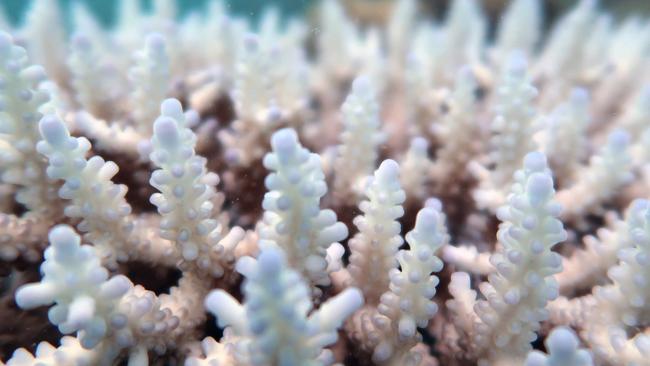2020 Great Barrier Reef bleaching more severe, widespread
The 2020 coral bleaching on the Great Barrier Reef is more severe and widespread than previous bleaching events, new research has revealed. SEE THE PHOTOS

Townsville
Don't miss out on the headlines from Townsville. Followed categories will be added to My News.
The 2020 coral bleaching on the Great Barrier Reef is more severe and widespread than previous bleaching events, new research has revealed.
“For the first time, severe bleaching has struck all three regions of the Great Barrier Reef – the northern, central and now large parts of the southern sectors,” said Professor Terry Hughes, director of the ARC Centre of Excellence for Coral Reef Studies.
“We surveyed 1036 reefs from the air during the last two weeks in March, to measure the extent and severity of coral bleaching throughout the Barrier Reef region.”
RELATED
‘Uncomfortably hot’ water bleaches Maggie Island corals
Actor in mermaid outfit blocks works on Adani mine
According to the James Cook University-based centre, the bleaching was caused by thermal stress due to spikes in sea temperatures during unusually hot summers. February had the highest monthly temperatures on the Great Barrier Reef since the Bureau of Meteorology’s sea surface records began in 1900.
Major bleaching was reported off Magnetic Island, with retired marine biologist Dr Leon Zann saying it was the worst he had seen in 50 years.
Aerial surveying shows parts of the Reef between Townsville and Cairns were some of the worst affected along with inshore reefs from Mackay south.
Surveys by the centre revealed the gap between recurrent bleaching events is shrinking, hindering a full recovery of the Reef.
It said most recognised tourism areas of the Reef had no, negligible or moderate bleaching.
Originally published as 2020 Great Barrier Reef bleaching more severe, widespread
